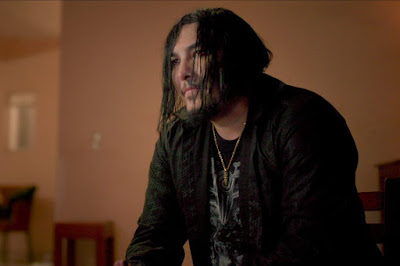If the assault on the US Capitol on January 6 has taught us anything, it is that some people are extremely gullible.
They can be easily whipped up into a frenzy by malicious online conspiracy theories.
Western societies have become so pre-programmed to see conspiracies everywhere in anything, they are more vulnerable than ever to online misinformation and political manipulation.
Racist, anti-Semitic, anti Islamic and other sectarian rhetoric have always been a cancer on political discourse.
However online conspiracy fantasies have adeed another disturbing layer of menace - making debate more fevered, more aggressive, with threats of violence against political opponents becoming more prevalent.
In a world of increasingly partisan news and commentary pumped out on TV news channels, social media and blogs 24 hours a day, ordinary people are also drowning in information.
They are struggling to discern fact from propaganda and insidious fiction.
It is a worldwide phenomenon and not just confined to the United States.
People in Europe, the UK, Australia, South America and Canada have succumbed as well to online misinformation and it has reached a point where families and relationships are being destroyed.
Some politicians drunk on a desire for power have exploited the confusion for their own ends, wrapping themselves in populist rhetoric that encourages disillusionment and wild speculation.
Others have stood idly by, ignoring or refusing to confront the problem.
This toxic political atmosphere was, of course, decades in the making.
In the US, the assassinations of President John F Kennedy and other major figures, Chappaquiddick, Watergate, Contragate, the LA riots, the Oklahoma bomb, the Monica Lewinsky affair, the OJ Simpson affair, 9/11, the Iraq War and the 2008 financial crash corroded a lot of Americans' faith in their own institutions and sense of security.
Add into the mix, the repeal of the Fairness Doctrine, the rise of partisan talk radio shows and news channels, the emergence of blogs and social media and you have the tools for exploiting people's sense of disillusionment and paranoia for political and commercial gain.
Bloggers and social influencers, in particular, trample over the facts and the sensitivities of others to cash in on people's pain.
Insidious theories have been planted and believed about 9/11, the birth certificate of Barack Obama, the California fires and school shootings like Sandy Hook.
It is in this context that Netflix has released Joe Berlinger's disturbing four part documentary 'Crime Scene: The Vanishing at the Cecil Hotel'.
Berlinger's series focuses on the death of Elisa Lam, a Canadian student from the University of Vancouver, who travelled to Los Angeles in 2013 and ended up being discovered floating in a rooftop water tank of the hotel she was staying in.
The hotel in question was infamous.
Located in the rundown Skid Row area of downtown LA, the Cecil Hotel became known as a place where drug addicts, prostitutes and psychos liked to stay because it was so cheap.
From the 1930s onwards in the wake of the Wall Street crash, it became synonymous with suicide and murder with the Black Dahlia, Elizabeth Short reported to have been seen drinking there before her murder in 1947.
The infamous rape and murder of retired telemarketer "Pigeon Goldie" Osgood occurred within its walls in 1964.
One of LA's most notorious killers 'The Night Stalker" Richard Ramirez also lived there as he engaged in his killing spree in the city during the 1980s.
The on-the-run Austrian serial killer, Jack Unteweger carried out the murders of three sex workers in Skid Row while staying as a guest under the guise of a reporter researching the seedy underbelly of the local area.
So when LA police investigating the disappearance of Elisa Lam released a video of her behaving oddly in an elevator in the hotel, it triggered a tsunami of interest as it spread online.
Self-appointed web sleuths and You Tubers pored over every detail of the video, noticing odd jump cuts and images that suggested she might have been hiding from someone else.
When the police indicated she had been found naked in the hotel's water tank whose hatch had been closed, it only added to the online clamour for a perpetrator to be found.
What emerges in 'Crime Scene: The Vanishing at the Cecil Hotel' is a rather depressing and horrific tale about a grim history of death in a rundown community, online illusion, mental health problems and conspiracy theories versus cock-up.
Berlinger interviews detectives involved in the search for Elisa's body and in the subsequent investigation, social media influencers who seized on the case, journalists, hotel guests, Skid Row historians and the former general manager to build a compelling but truly awful tale.
Excerpts from Elisa's Tumblr blog are used to give the viewer an insight into her state of mind before and during the visit to LA.
The revelation that she suffered from bipolar disorder adds a further element of complexity to the case, as detectives and online spectators speculate about her strange behaviour in the video.
A bizarre series of coincidences - one involving the Walter Salles' 2005 supernatural horror movie 'Dark Water' - add further fuel to the online fire, prompting social media spectators to speculate wildly about her death.
This leads to some very uncomfortable questions about the kind of prurient society we have become.
Over the years, Netflix has generated a lot of debate about bizarre crime with documentary series like 'Making a Murderer' and 'Tiger King'
And while it is understandable and easy to scoff at the social media influencers in 'Crime Scene: The Vanishing at the Cecil Hotel' living vicariously through the Lam case and exploiting it for their own ends, you cannot help feeling that by watching the series and other true crime documentaries, we also run the risk of being accused of intruding on other people's misery and grief.
The series never really manages to shake off that ambivalence throughout its four episode run and it is augmented by the fact that the Lam family declined to be interviewed for the show.
If 'Crime Scene: The Vanishing at the Cecil Hotel' succeeds at anything, it is in the way it shines a light on the baying mob mentality of social media and the relentless narcissism of online commentators who trample over the facts and hinder the investigation by treating wild speculation as gospel.
Not all of them appear to have absorbed the lesson of the Lam case and it is sometimes hard to believe they are contrite.
Two other things will also strike the viewer.
With 80 deaths occurring during her ten year tenure as the General Manager of the hotel, Amy Price may have a strong claim to have had the worst job in the world.
The other lesson is if you ever check into a dodgy hotel and discoloured water comes out of the taps, don't wash or brush your teeth in it.
Just get the hell out of there.
'Crime Scene: The Vanishing at the Cecil Hotel' is a grim reminder that the world is full of broken souls in rough places and really sad stories.
The challenge is how do we avoid people distorting and exploiting them?
('Crime Scene: The Vanishing at the Cecil Hotel' was made available for streaming on Netflix on February 10, 2021)











Comments
Post a Comment